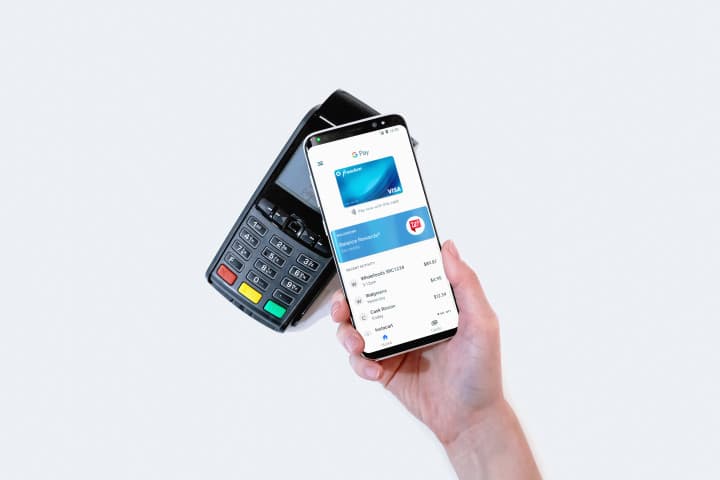Budgeting is not an easy task. But it’s a necessary one if you want to live life on your terms. Figuring out how much you can spend, how much you need to save, and how much money goes where it takes time and patience. However, the more time you put into budgeting, the better off financially you’ll be in the long run.
There are many budgeting tips and tricks and other ways you can get better at budgeting. The more you know about budgeting, the easier to develop better budgeting skills. This article will cover simple things you can do to improve your budgeting skills.
What are Budgeting Skills?
Budgeting skills are the techniques you use to manage how much money goes where. A budget is not set in stone. It can be changed and tweaked based on your preferences, needs, and wants.
For example, if you have a wedding planned for next year, you will likely need to save more money than usual to pay for it. Having budgeting skills is essential for planning a wedding.

If you make 40k per year, you will need to budget out how much is $40,000 per year per hour to calculate your monthly expenses. You might decide to change how much of your paycheck goes into savings or how much of your paycheck goes towards paying off debts like credit cards or student loans.
You can also change how much money goes towards your daily spending by cutting down on unnecessary expenses like eating out too often or buying brand-name items when generic ones cost less.
How to Develop Budgeting Skills
Refining your budgeting skills doesn’t happen overnight, but it is something that you can do with practice. By reflecting on how you currently apply your budgeting skills in your daily life and working to improve your habits over time, you will see how much of an impact it can have on how well you manage your money.
Be Realistic About Your Financial Goals
If saving up for a new car or buying a vacation home is one of the main reasons why you start budgeting in the first place, then it’s essential to be realistic about how quickly these goals can unfold. You can create a personal balance sheet to calculate your net worth, which will allow you to see how much money you have. Then you can appropriate that money towards your goals.
Track Your Money
Tracking how much money you spend regularly forces you to be aware of how it’s being used. According to this Mint report, over 60% of people surveyed had no idea how much they spent last month. However, tracking your expenses is the most effective way to pinpoint how your actions affect how much disposable income you have at your disposal. Tracking your money is one of the main habits that top budgeters follow.
Save up for Big Purchases
By saving up in advance for a big purchase, can help cut down on how much interest you pay when financing that item. If possible, try saving double that amount so that if any unexpected expenses come up during the timeline of your financial goal, then you have an emergency fund to rely on until things sort themselves out.
Pay Yourself First
If paying all of your bills isn’t enough motivation to save enough money to reach your goals, consider how good it would feel to save up and pay yourself first. Using the budget by paycheck method can ensure that you do pay yourself. This way, you can help train yourself to live without the money you’d usually spend on other things.
Seek Knowledge
Think about how much more efficient you are regarding how much time and energy you devote towards how well your budget is set up throughout all of your expenses. Finding methods to extract as much value as possible from managing this operation will eventually lead to what money you have left over. Then you will determine if there’s any room for savings.
Give Yourself Some Flexibility From Time To Time
Budgeting can sometimes feel restrictive since it forces you to make sacrifices by cutting down on certain luxuries. But if you find that your budget is becoming too limiting, consider how you can make the most out of how much money you have available.
Seek Financial Advice From Friends Or Family Members
Since no two people’s financial situations are exactly alike, there’s no shame in seeking advice from other individuals who have more experience managing their finances. The key is to learn how they handle things and apply them to your circumstances.
Automate Your Budgeting Efforts
You can make your budget as easy as possible to keep up with by using online banking platforms that can automatically send/receive money from your account. But even if you’re not comfortable with how this works, then at the very least, make it a point to track how much of your disposable income is being used up regularly.
Try Out Different Budgeting Methods To Manage Your Money
The key is finding what works best for managing your finances and how it fits into your lifestyle. For example, some people prefer withdrawing cash from their checking accounts each month to use “cash only” methods when shopping or making purchases. Others might find it more beneficial to open up a separate savings account to put away a certain amount of money regularly. There are many personal budgeting methods that you can use.
Take Advantage Of Online Resources For Budgeting Tips
Several websites offer free tips on how to improve your budgeting skills. However, if those tips don’t work for you, then try going directly to the source by searching online for additional resources about how best to handle how much money you have monthly.
- Mint: This software is one of the most popular tools used by people worldwide to manage their budgets. It’s an online spreadsheet tool where you enter your personal data, such as how much money you make each month, how much goes toward rent, utilities, car payments, etc. Then, the site will calculate how much money is left for food, gas, and entertainment. This is a great way to get you thinking about how your budget works or how it can be altered if need be.
Pay Your Bills On Time Every Month
If it becomes necessary to use checks to pay off how much money is owed or how you handle your finances, ensure that every check has been written out entirely and doesn’t contain any mistakes. This can result in extra fees being assessed against you.
Use Cash Instead Of Credit Cards Whenever Possible
Some people find it more convenient to use their credit cards to make purchases instead of how they would otherwise carry around cash with them at all times. However, if possible, consider how the interest rates are higher compared to how much value you get from using credit cards for making purchases.
Be sure to know how to find your finance charge on your credit card so you can compare interest charges vs. another form of payment.
Embrace Your Mistakes And Learn From Them
Budgeting is how you learn how to manage your finances better over time. Although mistakes will be made, what matters most is how you use that knowledge to improve how things work in the future.
How to Get Better at Budgeting
If you feel like you need professional help and guidance, there are many resources you can look into. Think about finding some classes on budgeting, how to manage your money, how to save, how to create a budget, and how to stick with it.

Many of these will be free or low-cost online resources that you can learn from at home or anywhere with an internet connection.
Some places that offer budgeting classes are:
- your local library
- your school
- a community college or university
You can also look online for free how-to guides on creating budgets and how to automate them.
Watch for Common Budgeting Errors
Getting better at budgeting involves being aware of common errors with budgeting. Even great budgeting gurus make mistakes. Here are a few common errors you should watch for, how to avoid them and how to learn from them.
Some of the common mistakes made when budgeting include:
- Not paying yourself first: If you don’t set money aside for future expenses, how will you ever be able to pay them when they come up?
- Not Enough Savings: Having no savings at all is a terrible idea when planning to manage your finances. Without having any savings account, what will happen if something unplanned comes up? What will you do when the car breaks down one day and needs fixing? And how will you pay for unexpected medical bills or emergencies that always seem to pop up at the most inopportune times?
- Underestimating Expenses: One under-estimated expense could be how much money you need throughout the month towards costs such as gas for your car or public transportation costs (if any), how much it costs weekly or monthly to eat out, and how much it costs weekly for groceries. If you’re not thinking about how much money you need in advance, how can you accommodate that amount with your budget?
- Failing to use a budgeting tool: These tools can help you organize how your money is spent and how much is available in each category so that you always know how much you have left over to spend on anything else. There are even ways how to use Quickbooks for personal finance if you already own it.
- Trying too many different budgeting methods: You can quickly become overwhelmed at once if you use too many budgeting methods simultaneously. You must pick one technique and stay with it until it’s working well enough for you before trying something new.
Use Tools and Personal Spreadsheets
If you are having a hard time with goal setting and prioritization regarding budgeting, you can get help. There are tools available that can help you determine how to prioritize your expenses, how much money is coming in, and how much you have to spend or save. You can use a personal finance flowchart to help guide your decision related to your budgetary guidelines. In addition, there are also resources below.
Plan to Reach Your Goals
If you want to learn how to manage your finances better, you’ll first need to set some goals. You’ll want to make sure that they are realistic and achievable so that you don’t have an overwhelming sense of failure.
Some good general purposes (or niche budgets) are saving for college or retirement, building up your emergency fund, improving your credit score, and paying off debt. Some other minor personal finance goals might include buying a new home or car, taking a vacation, or redecorating the house.
- Budgeting For College: If you are in a position where you need to save for college, this can be easier than many other financial tasks. You will first want to determine how much money your child will cost per year and how much of that you can afford without jeopardizing your present quality of life. Then, decide how much money each month should go towards saving so that it has time to build up enough funds for the significant expenses that come with college, like tuition and dorm rent. If you have kids getting ready to go to college, budgets are excellent ways how to teach teens about financial responsibility early on.
- Budgeting For Retirement: This is a beautiful goal for younger people who don’t have children or mortgages because they still have plenty of time on their side before they even reach retirement age. This means that there’s no rush, and there’s also more flexibility to how they budget for it. It may be a good idea to start by saving just a little bit at first and then gradually increase how much you keep over the years until you have more or less reached your goal amount. If you start early, you can quickly retire on 500k. This way, there is no rush or mistakes made because of not planning enough time and correcting them right away.
- Building An Emergency Fund: This is often one of the biggest goals that people want to accomplish in terms of personal finance because it has such an immediate effect on those who need it most if an emergency were ever to occur. Saving this money can help you avoid getting into debt to cover emergency expenses like medical bills, auto repairs, etc. It’s best if you build up a reserve before something happens so that you can have a sense of financial security when things are at their worst.
Related Questions
Can You Get Rich From Budgeting?
You can get rich from budgeting, but how much you’ll save will depend on how serious you are about how much money you want to make. However, keeping $10 per week for ten years is an excellent way to reach long-term savings goals like retirement or a new home purchase.
As with any goal, the more time you have and the more consistently you remain committed to how much money should be saved each month, the better chance you will have of reaching your long-term savings targets.
How Can You Make A Budget That Will Work?
You can make a budget that will work by being realistic about how much money you have to work with and how many expenses are each month. It would help if you also were sure how often it’s updated to reflect your current income level and spending habits.
Avoid any temptation to live above your means or spend more than what is necessary because this can easily lead to fiscal troubles down the road when money gets tight. It’s crucial how not to get discouraged, but rather keep reminding yourself why keeping up with your personal budgets is vital for long-term financial success. Find a good accountability partner if you need extra encouragement.
Conclusion
It’s important to note how budget skills are not one-size-fits-all. Your needs and goals will vary from those of your peers, so it is best to explore the various ways to be successful with personal finance while working towards building better budgeting habits that work for you.
The methods outlined in this article should help give you an idea of focusing on specific financial goals like retirement or college savings. You’ll also find some helpful tips about avoiding debt when emergencies arise and saving up enough funds before something happens by creating an emergency fund now rather than waiting until after the fact.
It may seem overwhelming at first to think about these long-term financial plans, but if we break them down into smaller chunks, they become much more manageable.
If something doesn’t work out as planned (and that’s bound to happen), pick yourself up and try again with a new pulse. There are plenty of factors to play into how much money you save each month, so patience is key until you find what works best for you financially in the long run.



